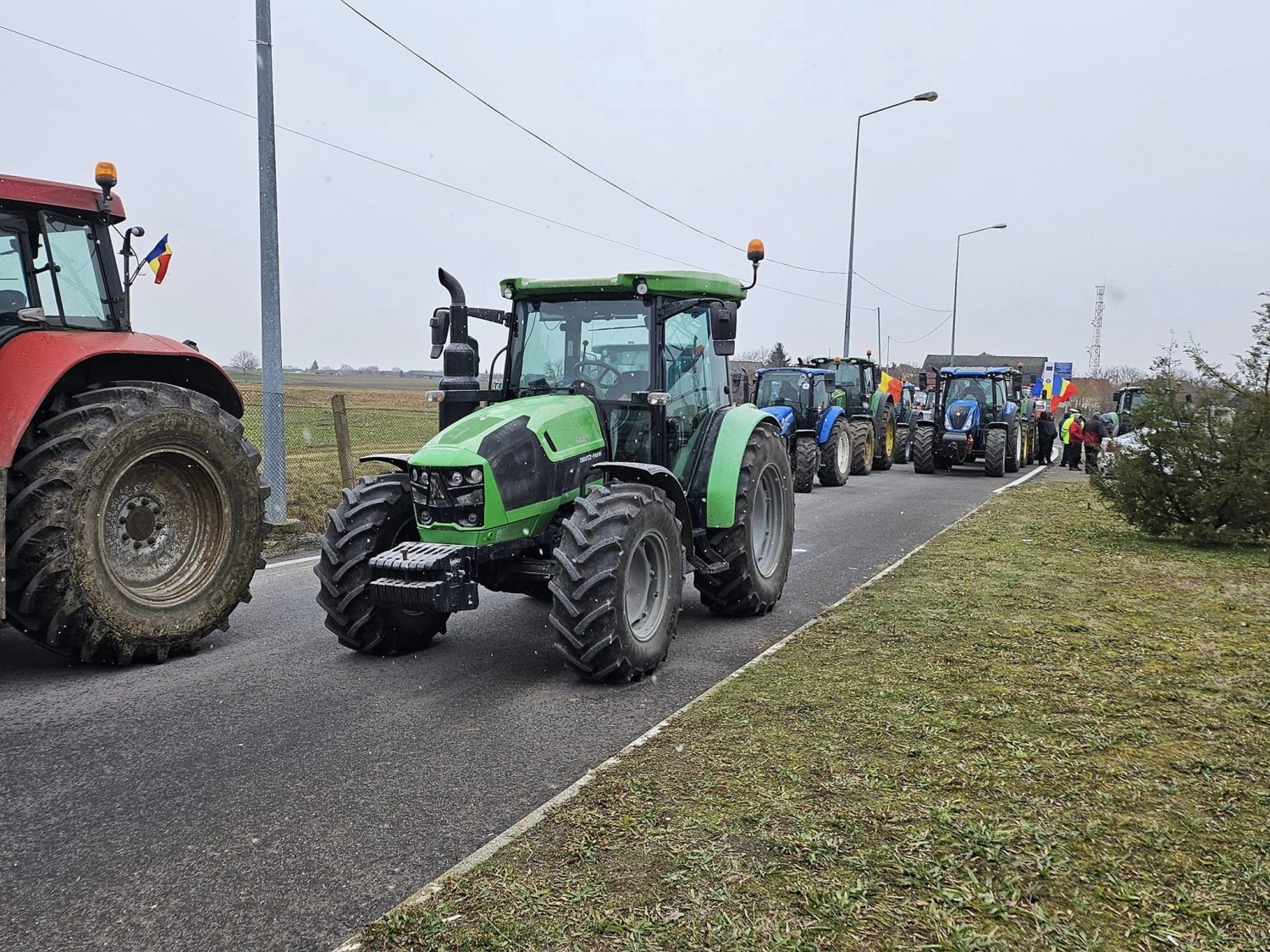
The Democratic Alliance of Hungarians in Romania (RMDSZ) expressed support for the farmers.Continue reading
Grain traders have imported one million tons of Ukrainian wheat to Romania this season. This makes Romania the second largest export market for Ukrainian wheat after Spain (3.3 million tons), reports the Romanian business portal Economica.net, citing data from the Ukrainian customs authorities. In contrast, MEP Enikő Győri (Fidesz) emphasized that “we cannot be in solidarity with Ukraine to the detriment of European farmers.”
In the market year that began on July 1 of last year, the next places on the list of wheat export destinations were Egypt, Pakistan, and Turkey. Romania no longer appears in the data on Ukrainian wheat exports in February – the most important destinations are Pakistan, Egypt, Tunisia, and Turkey.
Last autumn, Romania made the import of agricultural products from Ukraine subject to approval, and since then they may only be imported by local farmers and processors. The temporary exemption from customs duties for Ukrainian agricultural products destined for other markets enabled traders to sell significant quantities in Romania. This led to serious market disruptions, depressed purchase prices for grain and oilseeds, and made transportation more expensive, causing 45% of Romanian farmers to become insolvent, according to the Romanian Ministry of Agriculture.
In January, Romanian farmers protested for three weeks with their machinery against the consequences of Ukrainian grain exports, among other ways, by blocking traffic.
Prime Minister Marcel Ciolacu has repeatedly stated that Romania only allows transit and that “not a single grain of Ukrainian wheat” has remained in the country since October. Nicu Vasile, the chairman of Romania’s largest farmers’ association AAC, contradicted this at the end of January, stating that significant quantities of Ukrainian grain and processed products have reached the Romanian market. The data now published supports his statement.
Meanwhile, on Monday afternoon, the European Parliament’s Committee on International Trade (INTA) discussed the extension of the suspension of import duties, quotas, and market protection measures for Ukrainian exports to the EU.
MEP Enikő Győri said in her speech: “We cannot be in solidarity with Ukraine to the detriment of European farmers, while Brussels is making rules that make production more expensive for our farmers, allowing almost unlimited imports of agricultural products from a third country where the same rules do not apply.” She welcomed the fact that tariffs are to be imposed on Ukrainian imports of poultry, eggs, and sugar above a certain quantity. However, Győri sharply criticized the fact that these measures only apply to products that cause problems for Western European countries, leaving out the most problematic products for Ukraine’s neighboring countries, including Hungary, such as grain and honey.
Ukrainian agricultural products originally destined for Africa and the Middle East have been diverted by speculators to European markets.
This has led to a situation where Russia is now supplying grain to these regions (…) so that Russia has ultimately gained new markets thanks to the EU’s bad decisions,” the Hungarian MEP explained.

Photo: Facebook/Vincze Loránd
Independent observers in Romania often accuse the Bucharest government of premature obedience to Brussels. At the beginning of December, Agriculture Minister Florin Barbu affirmed his determination to represent the interests of Romanian agricultural producers in Brussels by campaigning for the maintenance of the approval procedure for Ukrainian grain exports. He also promised domestic farmers that flour and sugar would be added to the embargo list.
In mid-September, he assured his Hungarian counterpart of his government’s support in the fight against Ukrainian exports disrupting the market. In view of the data now published, however, it must be concluded that the promises from Bucharest are more of a rhetorical exercise. On the one hand, the Romanian government wants to stick to the Brussels line (“whatever it takes, as long as it takes”). However, on the other hand, it does not want to make trouble with either its neighbors or its own farmers. Whether Prime Minister Marcel Ciolacu will succeed in this balancing act is more than questionable.
In the big election year of 2024, the leader of the Romanian Social Democrats can hardly afford to upset his rural voters.
The deal presented by Brussels remains indigestible, even for the farmers of the southeastern European country. To quote a Romanian proverb, Marcel Ciolacu wanted to ‘feed the goats and save the cabbages at the same time.’ The fact that Romania no longer appears as a destination country for Ukrainian grain exports in February indicates a late insight on the part of the Romanian head of government, who still puts the Romanian interests above the Ukrainian. Will this opportunistic policy be rewarded by the social democratic core voters, the farmers?
Via Ungarn Heute, Featured image: Facebook/Profitul Agricol